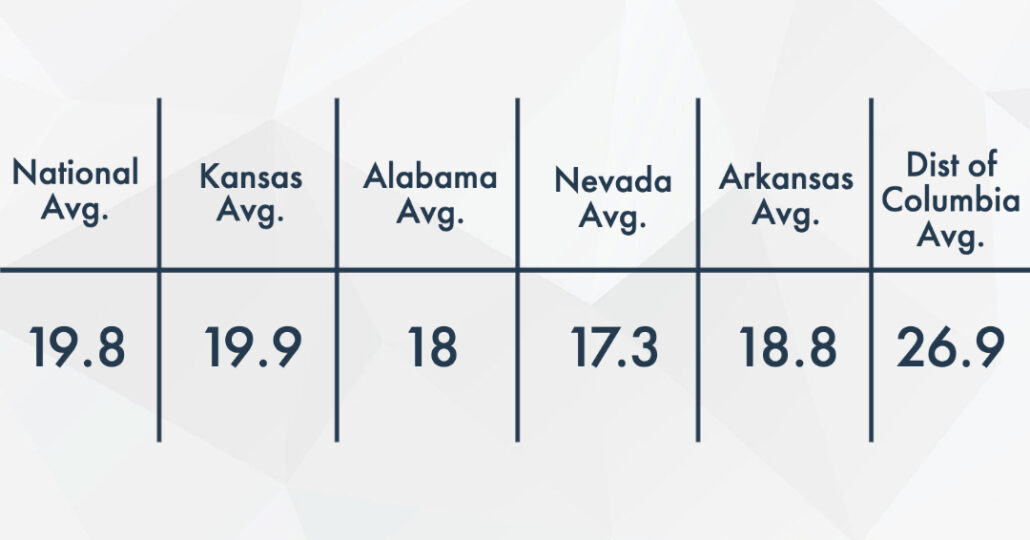My College Application Process
My college application process was pretty chaotic- I ended up applying to 19 schools. I thought applying everywhere I was even remotely considering would give me the best spread of options when it came time to make a decision. Instead, I found myself spread way too thin, and I ended up getting rejected from most of the more competitive schools. Looking back, I think the two biggest components of the application process are demonstrating interest and wanting schools that want you. I wish I had devoted more energy and effort to pursuing these qualities more deeply in a smaller number of schools.
Demonstrating Interest
When you apply to 10+ schools like I did, you can’t put a lot into each application. Colleges can’t see how many schools someone is applying to, but they can see which students are spending the most time on their websites. They can see which students are reaching out to admissions counselors, and doing online tours, and opening their emails. Focusing on a few select schools allows you the ability to commit to this more fully.
According to the National Association for College Admission Counseling, 68% of colleges utilize demonstrated interest in their admission process. Some demonstrated interest involves expensive endeavors, like traveling to take in-person tours, or paying for the colleges’ summer camps. But there are plenty of easy, free ways to demonstrate interest that can have just as much of an impact.
Here are some of the easiest ways to show a college you’re serious about going there:
- Open emails from the school
- Click on the links included in these emails
- Follow the school on social media
- Fill out any contact or interest forms they offer on their website
- Take a virtual tour, or attend virtual information sessions
- Reach out to an admissions counselor
Basically, your goal is to get the college to notice you. Sending a few emails, even if they’re just to ask easy questions, puts you on a school’s radar and gives you an advantage over your peers. If, at the end of an admissions process, a college comes down to deciding between two equal candidates, they are always going to choose the person who they think wants to go to their school more. Demonstrating interest means making sure you’re that person.
Ultimately, you should be learning as much as you can about your top schools anyway. Figure out what classes you would take, or what clubs you would join. Look into special programs, or opportunities for research or internships. Let yourself get excited about the school. It will help you gauge whether it’s really the right place for you, and it makes the application process way more fun.
Wanting a School that Wants You
Wanting a school that wants you is vital. This usually goes hand-in-hand with being financially practical, too, which is a big plus. When a school wants you to be there, they are going to go out of their way to pave the road so that you can be their student, whether that means offering more scholarships, or providing opportunities for smaller, more supportive groups within a larger school. This is something I wish I had understood better when I was applying: you hold a lot of power as an applicant, and there’s nothing wrong with using it to get what you want. Acting as if you are a valuable and noteworthy candidate will make a school think so too.
Toward the end of my college application process, I had narrowed my choices down to SMU and UT-Austin. UT was the more prestigious option. Lower admission rate, higher rankings, more well-known. It was also going to be 60k a year, and I would have been middle of the pack among my peers. It isn’t self-defeating of me to admit I wasn’t wanted by UT. They had thousands of students ready to step in and fill my spot the second I backed out, and if I had encountered problems as a student there, I would have had to demand and fight for the resources I needed. Choosing UT-Austin would have meant, for me, 4 years of financial strain and constant vying for attention from the administration, with few opportunities to stand out or excel.
SMU was, initially, a school I hadn’t even wanted to apply to (proof that listening to your mom pays off). But, despite the school holding nicknames like “Southern Millionaires University,” SMU ironically ended up super affordable. They offered me 4 or 5 smaller scholarships that, combined, made a pretty big difference. And when I reached out requesting more financial help, an advisor was quick to find the necessary funds.
They also offered me a spot in a smaller program- the Dedman Scholars Program– that provides an invaluable support system. With only 10-20 students per grade, the program allows access to a plethora of vital resources and gives students the opportunity to seek more personalized and accessible help, either from one of the four leaders or a member of their student-led leadership board. Plus, they host monthly social events! It makes the school feel small in all of the right ways.
I don’t think choosing the cheapest option is necessarily the best approach. But when a school goes out of their way to enable or compete for your attendance, especially financially, it’s a pretty sure sign that they want you at their school, and they won’t just abandon you as soon as you buy into their system. The more a college has invested in a student, the harder they are going to work to ensure that student’s success.
It’s a tricky balance, trying to find a school that is going to want you enough to meet your needs, while also getting you to where you want to go. It depends on your field of study too- this is way more pertinent to liberal arts majors than a more STEM-focused student. But for me, at least, the school that wanted to meet my needs was the school that was going to get me the furthest. The way I see it, it’s easier to succeed when you feel like the people around you want you to succeed too.
For help applying to colleges, reach out to one of our tutors. We are happy to help you along your college application process.










